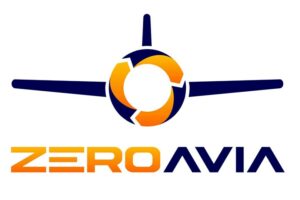ZeroAvia
Hydrogen-powered, zero-emission aviation
ZeroAvia is a British/American hydrogen-electric aircraft developer. The company was founded in 2017 by Valery Miftakhov, a serial clean tech entrepreneur, developing hydrogen-fueled powertrain technology seeking to create zero-emission air travel.
In 2019, the company completed flight tests of the electrical aspects of the initial powertrain design, where it was later reported that an external hydrogen tank was fitted to a Piper Matrix aircraft.
The company moved to a facility in Cranfield UK in 2020. Installation and test of the ZA250 hydrogen–electric powertrain in a six-seat Piper Malibu took place in 2020, culminating in an eight-minute first flight of the hydrogen-electric Malibu in September that year. It was the company’s first commercial-scale hydrogen-electric-powered flight. Later that year, the company was awarded £12.3 million, from the UK Government, to develop a 19-seat hydrogen powered aircraft with a 350-mile flight.
In 2021, ZeroAvia launched development for a 2 MW hydrogen-electric powertrain for full-size regional aircraft, and also started to develop the HyFlyer II aircraft at Cotswold Airport. ZeroAvia’s hydrogen-powered Piper PA-46-350P demonstrator testbed crashed in a field during a flight from Cranfield. No one was seriously hurt in the accident, but the aircraft received substantial damage, losing its left wing, after it was forced to land following a power system test. Investigation revealed that when the battery was disconnected to test operation on the fuel cell alone, excessive voltage generated by the motor turned by the propeller caused a protective shutdown of the motor’s inverter.
ZeroAvia obtained two Dornier 228 aircraft for the next phase of its 19-seat HyFlyer program in late 2021 and also completed its first high-power run of the ZA-600, a hydrogen aircraft engine. Ground testing included a flight-intent 600 kW (800 hp) powertrain, which pulled a 15-ton HyperTruck mobile ground testing platform across the tarmac. The HyperTruck tests systems for 40-80 seat hydrogen-electric powered aircraft and is sized to ZeroAvia’s ZA-2000 2 MW (2,700 hp)+ powertrain. These propulsion system tests are for the HyFlyer II programme, which hopes to develop a hydrogen-electric, zero-emission propulsion system for airframes 10-20 seats in size.
In 2022, the company announced a partnership with Otto Aviation to build a hydrogen-powered version of the Otto Celera 500L aircraft. Also, Textron Aviation and ZeroAvia partnered for the development of a hydrogen-electric powertrain for the Cessna Grand Caravan.
In 2023, ZeroAvia flew its Dornier 228 testbed for 10 minutes with one TPE331 turboprop replaced by a prototype hydrogen-electric powertrain in the cabin, consisting of two fuel cells and a lithium-ion battery for peak power. The team seeks to have a certifiable configuration by 2025.
